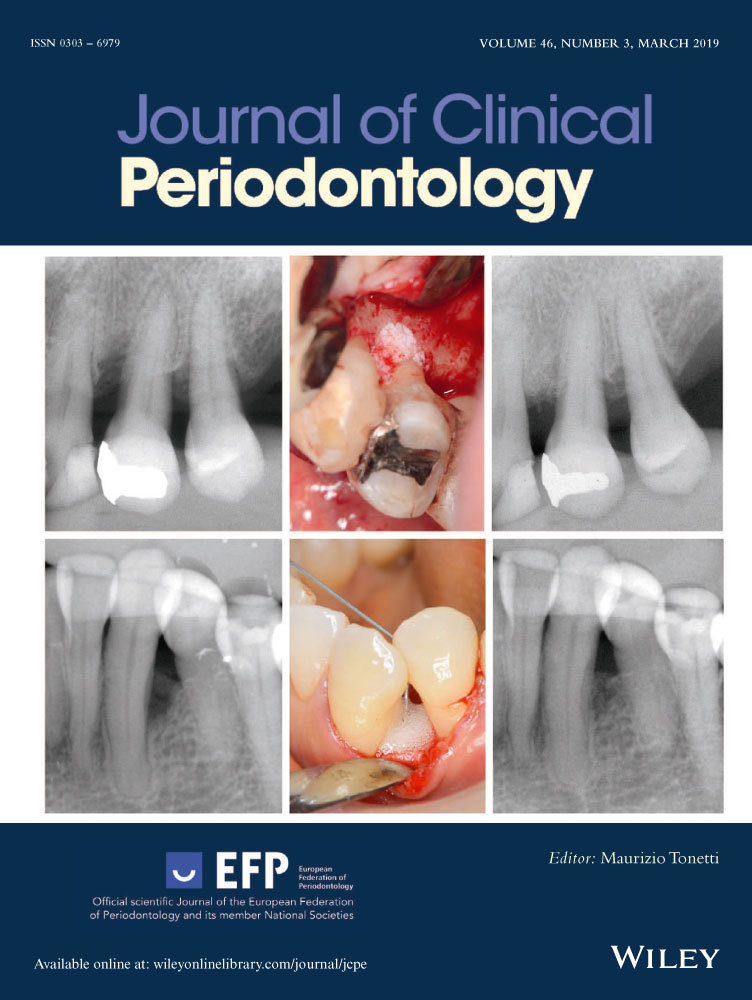Clinical effects of the adjunctive use of a 0.03% chlorhexidine and 0.05% cetylpyridinium chloride mouth rinse in the management of peri-implant diseases: A randomized clinical trial
Funding information
The study was funded through a research contract (58/2015) between University Complutense of Madrid and Dentaid S.A. (Barcelona, Spain), within the activities of the Cátedra Extraordinaria Dentaid en Investigación Periodontal (University Complutense, Madrid).
Abstract
Aim
To evaluate the efficacy of a 0.03% chlorhexidine and 0.05% cetylpyridinium chloride mouth rinse, as an adjunct to professionally and patient-administered mechanical plaque removal, in the treatment of peri-implant mucositis (PiM).
Material and Methods
Patients displaying PiM in, at least, one implant were included in this randomized, double-blinded, clinical trial. Subjects received professional prophylaxis (baseline and 6 months) and were instructed to regular oral hygiene practices and to rinse, twice daily, with the test or placebo mouth rinses, during one year. Clinical, radiographic and microbiological outcomes were evaluated at baseline, 6 and 12 months. Disease resolution was defined as absence of bleeding on probing (BOP). Data were analysed by repeated measures ANOVA, Student's t and chi-square tests.
Results
Fifty-four patients were included and 46 attended the final visit (22 in control and 24 in test group). In the test group, there was a 24.49% greater reduction in BOP at the buccal sites (95% confidence interval [3.65–45.34%]; p = 0.002) than in controls. About 58.3% of test implants and 50% controls showed healthy peri-implant tissues at final visit (p > 0.05).
Conclusions
The use of the test mouth rinse demonstrated some adjunctive benefits in the treatment of PiM. Complete disease resolution could not be achieved in every case.
CONFLICT OF INTEREST
The authors declare that they have no conflict of interest.




